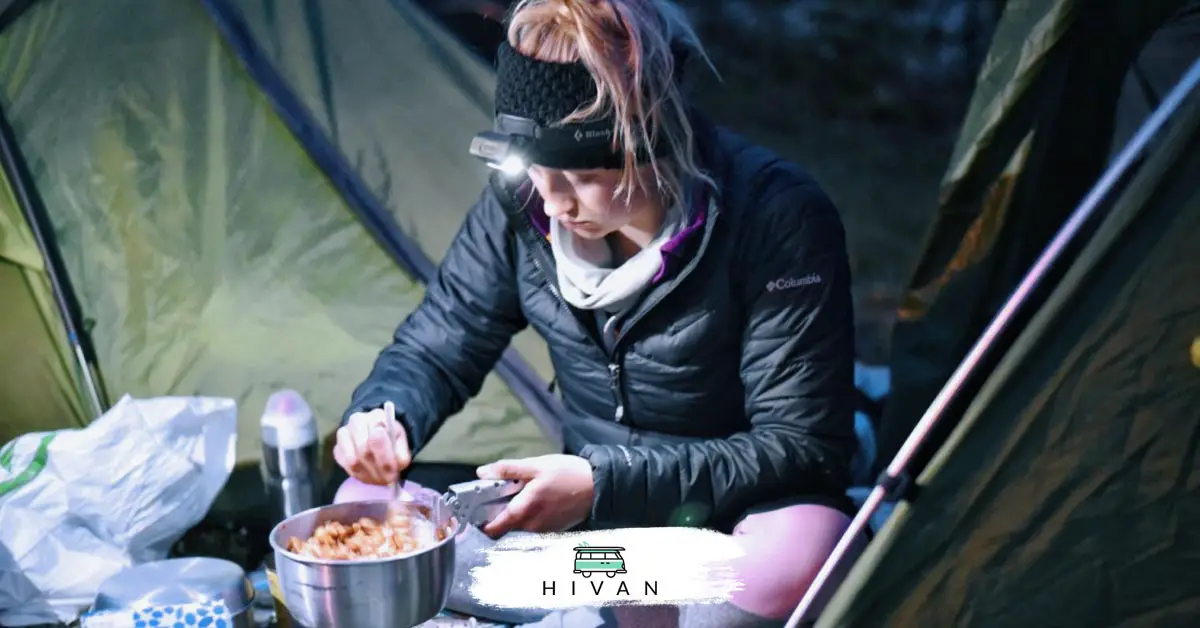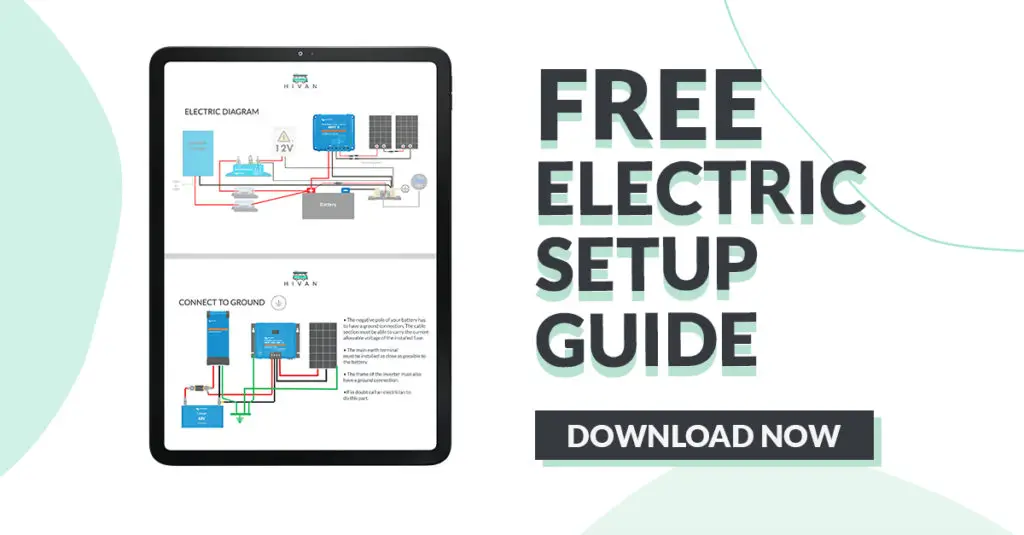Hi-van is supported by its audience. When you purchase using our links, we may earn an affiliate commission (no added cost to you). Learn more
One of the best things about camping is relaxing with natural beauty all around you while also enjoying the food you brought along or cooking over an open fire. However, unless you plan to return home the same day, you’ll need to store the leftover steak and veggies when you’re done. Should you keep camp food in your tent?

You shouldn’t keep camp food in your tent. Storing food in your tent can take up vital space and will also expose you to the threat of animal attacks. Bears and other smaller animals are quick to pick up on human food scents, and they can damage your tent while foraging.
The rest of the article will discuss why you should avoid keeping camp food in your tent. You’ll also learn the best way to store your food when you’re out camping.
Why You Shouldn’t Keep Camp Food in Your Tent
There are a few reasons why you shouldn’t keep camp food in your tent. They include:
Animal Problems
Many animals are equipped to sniff out food sources, wherever they may be.
Storing food in your tent sends up a signal to the animals around, and you don’t want them visiting when you’re in the tent. Rodents can arrive quickly, but even though they can disrupt your sleep and destroy your food supply, they are likely the least of your worries.
Bears will stop at nothing to get to the food. They won’t come in stealthily either, as the sheer force they operate with is sure to destroy your tent – and you don’t want to be in the tent when that happens.
Furthermore, animals that develop a taste for human food will become dependent on people and will become recurring pests in campgrounds. If you’re a frequent camper, this might ruin some of your favorite camping stops. Worse, it can put the animals themselves in danger, as some campers may retaliate violently.
Health Concerns
Animals don’t just take your food or destroy your tent – some of them can also pass on dangerous diseases through their saliva or droppings. You probably won’t get Lassa fever or a similar disease, but you could be stuck in the restroom for the rest of the camping duration. Worse, you may have to be airlifted to a hospital, cutting your camping trip short and ruining any additional plans you may have already made.
Aside from animals, storing food in your tent can lead to improper food handling. For example, you’re more likely to keep opening your refrigerated cooler if it’s within reach, making it more likely the food inside will get ruined.
Storage Space
Unless you’ve gone camping with a massive tent and you’re sleeping alone in it, you probably won’t have enough room inside to store all your camp food and still have enough space to sleep or move around. A cramped tent will leave you in general discomfort, and it increases the possibility of injuries.
Tips on How To Store Your Food While Camping
Wondering how to store your food while camping if you can’t bring it into your tent? Here are a few tips to keep in mind:
Storing Your Camp Food During the Day
You should secure your food during the day. All aromatic substances should also be locked away since they are more likely to attract animals. Toiletries aren’t food, but they also have to be locked away because they can draw unwanted attention.
If you’re camping in known bear country, leaving coolers in a tent unattended even during the day isn’t a good idea. Ideally, you should store your food, coolers, and cooking equipment in the trunk of your car (if you have one) or another tough vehicle.
The idea is to do your best to reduce human food scents around your campsite. Even when you’re not in bear country, squirrels, raccoons, and birds can wreak havoc on your supplies.
Storing Your Camp Food at Night
Just like you would in the day, you should store all your food and any scented items in a vehicle if your campground allows it. You need permission from the ranger because in some parks (like Yosemite National Park), bears have already learned to break into locked vehicles to forage for food.
Your coolers aren’t safe out in the open either, even if they claim to be bear-proof. You will need to find somewhere safe for them. If you’re in a camp where car storage isn’t allowed, you should put the coolers and anything else that can attract bears into a metal bear box. Campgrounds that have a heavy bear presence will often provide you with the boxes.
Storing Non-Refrigerated Foods
You should store all your non-refrigerated foods in paper bags before storing them in a larger box. For this, you should designate a cooler (without ice).
When choosing what to carry with you on your camping trip, make sure to only take produce that’s in good shape. For example, potatoes or turnips with soft spots on them will likely rot much quicker than firmer produce.
Storing Refrigerated Foods
You should also store your refrigerated foods in paper bags before transferring them to an ice-packed cooler. Keep them separate to reduce the probability of catching a stomach bug from the mixing. Allowing different fruits to rub together in the box can spread ethylene, causing them to become overripe.
Meat must especially be kept separate from other foods. If you only have one cooler, the meat should be in a double bag.
Storing Your Clothes After Cooking
We’ve talked about how to store your foods, but you also need to be careful with storing your clothes after cooking as well. If you’ve just finished grilling some delicious ribs, the scents and smells are bound to stick to your clothing. Make sure to change into a fresh set of clothes before you retire for the day.
Wearing the same clothes to sleep can still attract critters, much like an open cooler of food can. Store your clothes in a bear-proof container that’s at least 200 feet (60.96 m) away from your tent.
Final Thoughts
Keeping camp food in your tent is rarely a good idea because it leaves you at risk of bear and rodent visits. Even if you don’t intend to stay too long in the campground, you may end up attracting ants and other bugs.
Always store your food and cooking clothes far away from your tent. Ideally, they should be stored in the trunk of your car. However, a metal bear box is an even more secure option. Make sure to check with the rangers or camp administrators about any guidelines and follow them to the letter.
Find this content useful 🙂 ?
Subscribe to our Newsletter and get a free Solar Electric Diagram + shopping list.

